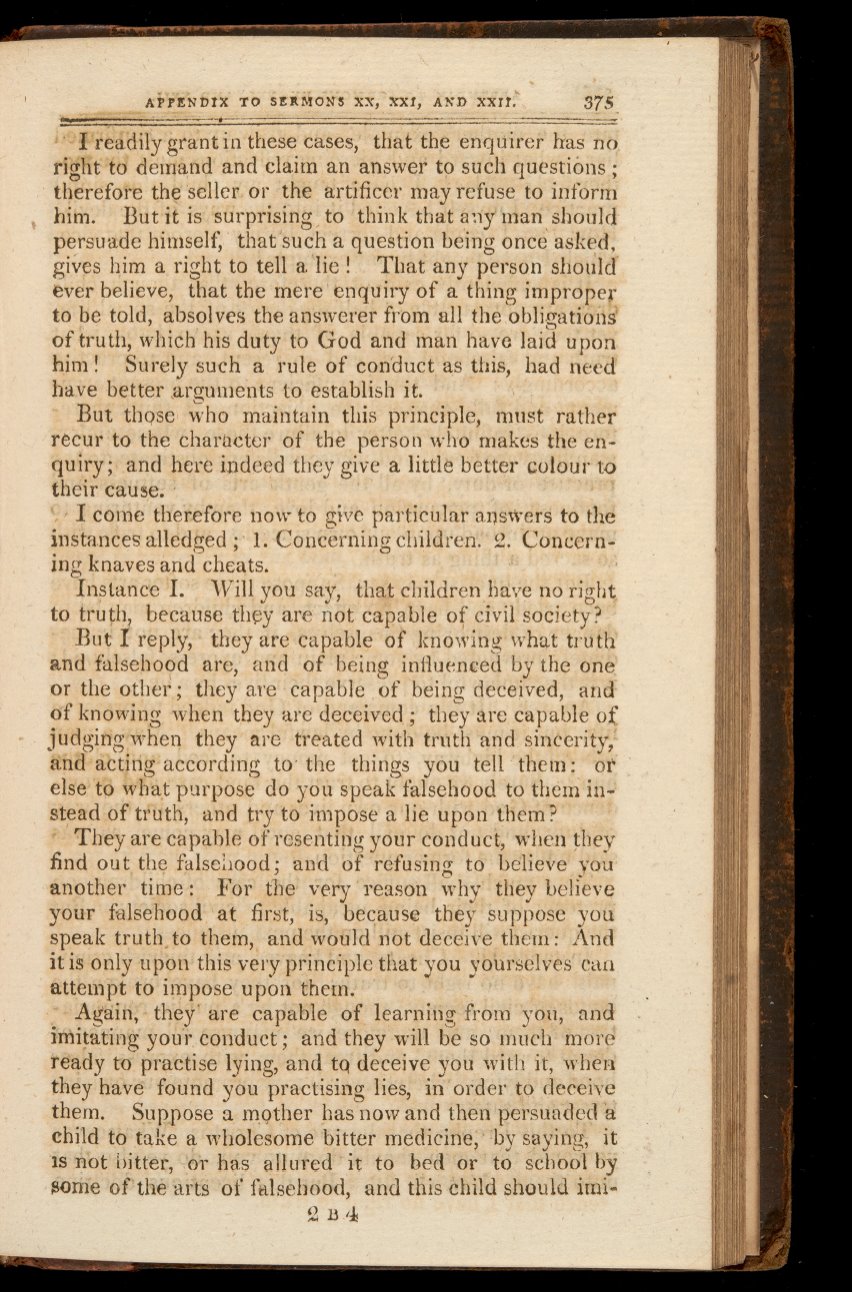

APPENDIX
TO SEAAIONS XX, XXf,
AND XXI1.
375
I
readily
grant
in these
cases,
that
the
enquirer
has
no
right
to
demand and claim an answer to such questions
;
therefore
the seller or the
artificer
may
refuse
to
inform
him.
But it
is
surprising,
to think
that any
man
should
persuade
himself,
that
such
a
question
being once asked,
gives him
a
right
to tell
a
`lie
!
That
any person should
ever
believe,
that
the
mere' enquiry
of
a
thing
improper
to
be told, absolves
the
answerer
from all
the obligations
of
truth,
which his
duty
to
God
and man have laid
upon
him
!
Surely such a
rule
of
conduct
as this,
had
need
have
better arguments
to
establish
it.
But these
who
maintain
this principle, must
rather
recur
to the
character of
the person
who makes
the
en-
quiry;
and here indeed
they
give a
little
better
colour
to
their
cause.
`,
I
come
therefore
now to
give
particular
answers to the
instances
alledged
;
1.
Concerning
children.
2.
Concern-
ing knaves and cheats.
Instance I.
Will
you
say,
that
children
have no
right
to truth, because
they
are not
capable
of
civil
society?
But
I
reply,
they
are capable
of
knowing
what
truth
and falsehood are, and
of
being influenced
by
the one
or the
other;
they are capable
of
being deceived,
and.
of
knowing when they are
deceived;
they are capable
of
judging
when they
are treated
with
truth
and
sincerity,
and acting according
to-
the
things you tell
them: or
else to
what purpose
do you
speak
falsehood to them
in-
stead
of
truth,
and try to impose a lie
upon them?
They are capable
of
resenting your conduct,
when
they
find
out
the
falsehood; and
of
refusing
to believe you
another
time
:
For
the
very reason why they believe
your
falsehood
at
first,
is,
because they suppose
you
speak
truth_to
them,
and
would
not
deceive
them:
And
it
is
only
upon
this
very
principle
that
you yourselves can
attempt
to impose
upon them.
Again,
they'
are capable
of learning
from you,
and
imitating
your,
conduct and
they
will be so
much more
ready
to
practise
lying,
and
to deceive you with
it,
when
they
have
found you
practising
lies,
in
order
to deceive
them. Suppose a
mother
has
now
and then persuaded
a
child
to
take
a wholesome
bitter
medicine,
by
saying,
it
is
not
bitter,
or
has
allured
it
to bed
or to
school
by
some
of
the arts
of
falsehood,
and
this child
should
imi-
13
.4

















